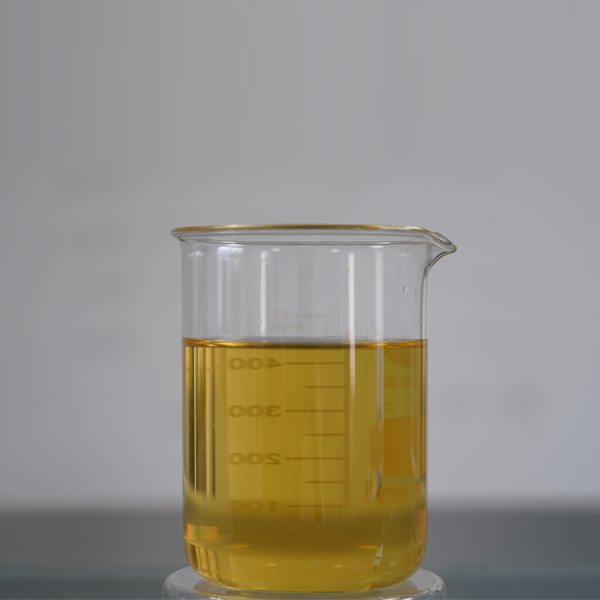
News
Říj . 11, 2024 00:13 Back to list
Manufacturing Soap with Effective Chelating Agents for Enhanced Cleaning Performance
The Role of Chelating Agents in Soap Manufacturing
In the world of soap manufacturing, the pursuit of high-quality products that meet consumer demand for effectiveness and safety is paramount. One of the unsung heroes in this process is the chelating agent. By understanding the role of chelating agents in soap production, manufacturers can enhance the performance and quality of their products, catering to the needs of the modern consumer.
What are Chelating Agents?
Chelating agents are compounds that can form multiple bonds with a single metal ion. This unique property allows these agents to effectively bind with metal ions that can otherwise interfere with cleaning processes. In soap production, chelating agents play a critical role in softening water, enhancing soap's ability to lather and cleanse. By sequestering metal ions such as calcium and magnesium, they prevent soap scum formation and improve the overall effectiveness of the product.
Why are Chelating Agents Important in Soap?
The hardness of water is a significant factor in the performance of soaps and detergents. Hard water contains high levels of dissolved minerals, primarily calcium and magnesium. When soap is used in hard water, these minerals react with the soap, resulting in a reduction in lathering and cleaning efficiency, as well as the formation of insoluble precipitates. By incorporating chelating agents into soap formulations, manufacturers can effectively trap these metal ions, preventing them from interfering with the cleaning process. This not only enhances the cleaning power of the soap but also ensures a better user experience.
Types of Chelating Agents in Soap Manufacturing
Several chelating agents are commonly used in soap production. Ethylenediaminetetraacetic acid (EDTA) is a widely recognized example. Its strong chelating properties make it effective in binding various metal ions, thus preventing soap scum and enhancing stability.
chelating agent soap factory

Other examples include sodium gluconate and citric acid, which are more environmentally friendly alternatives. These agents not only serve to chelate metal ions but also offer additional benefits such as biodegradable properties, aligning with the increasing consumer demand for sustainable and eco-friendly products. Manufacturers are now exploring natural chelating agents, which can be derived from renewable sources, promoting sustainability in soap production.
Formulating Effective Soaps with Chelating Agents
When formulating soap, manufacturers must consider the concentration and type of chelating agent used. The right balance is crucial to maximizing the product's effectiveness without compromising its safety. Research and development play a vital role in this process, as scientists work to understand the interactions between different ingredients and how they can be optimized.
Additionally, the regulatory landscape is evolving, with an increasing focus on the safety and environmental impact of chemical ingredients. Soap manufacturers must stay informed about regulations regarding the use of chelating agents, ensuring their products are compliant while meeting consumer expectations.
Consumer Awareness and Demand for Quality Soap
As consumers become more aware of the ingredients in their personal care products, there is a growing demand for transparency and efficacy in soap formulations. Highlighting the role of chelating agents in improving soap quality can enhance consumer trust and loyalty. By educating consumers about the benefits of chelating agents, manufacturers can position their products as superior choices in a competitive market.
Conclusion
In conclusion, chelating agents are essential components in the formulation of effective soaps. By preventing interference from metal ions, these agents enhance the cleansing ability and overall performance of the product. As soap manufacturers navigate the challenges of modern consumer preferences and regulatory demands, the effective use of chelating agents will undoubtedly play a pivotal role in shaping the future of soap manufacturing, ensuring that high-quality, effective, and sustainable products remain at the forefront of the industry.
-
OEM Chelating Agent Preservative Supplier & Manufacturer High-Quality Customized Solutions
NewsJul.08,2025
-
OEM Potassium Chelating Agent Manufacturer - Custom Potassium Oxalate & Citrate Solutions
NewsJul.08,2025
-
OEM Pentasodium DTPA Chelating Agent Supplier & Manufacturer High Purity & Cost-Effective Solutions
NewsJul.08,2025
-
High-Efficiency Chelated Trace Elements Fertilizer Bulk Supplier & Manufacturer Quotes
NewsJul.07,2025
-
High Quality K Formation for a Chelating Agent – Reliable Manufacturer & Supplier
NewsJul.07,2025
-
Best Chelated Iron Supplement for Plants Reliable Chelated Iron Fertilizer Supplier & Price
NewsJul.06,2025
